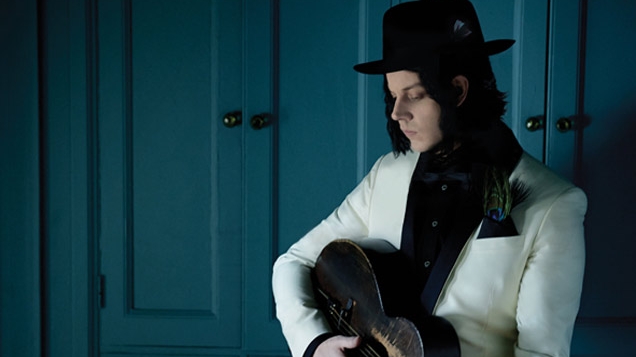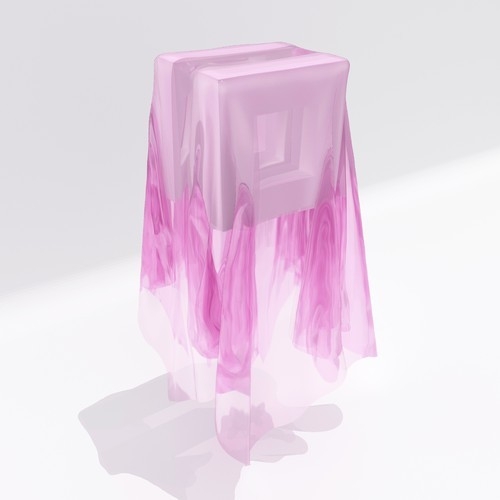From his time with ex-wife Meg in The White Stripes, he has, however, built a career of challenging expectations. First as a garage-rock provocateur (1999’s White Stripes and 2000’s De Stijl), indie trendsetter (2001’s White Blood Cells and 2003’s Elephant), and finally as a bedazzled commercial juggernaut (2005’s Get Behind Me Satan and 2007’s Icky Thump).In addition were the side-projects. He produced Loretta Lynn’s Van Lear Rose in 2004 and with The Saboteurs/Raconteurs and The Dead Weather, Jack proved that, given a full band, he could craft thoughtful, sonically adventurous records that were consistently solid and entertaining, if not essential. Each period brought with it a sense of reinvention, along with a keen, focused eye on how he was perceived.
All of which brought Jack White to a crossroad. Without Meg around — she’d basically broken up the band in 2011, citing ‘myriad reasons’, but mainly a lack of interest in the constant touring — and both side-projects heavily dependent on schedules, Jack struck out under his own moniker. It came after White established Third Man Records in Nashville, Tennessee in 2009, an emporium that was part-record shop, part-recording studio, part-venue and merch-stand, and named for his old upholstery business.
Having once again successfully reinvented himself, this time as a solo artist — “I think I’ve been sort of like… not allowing myself to call an album Jack White [from] when we started,” he says — White toured his first solo outing, Blunderbuss, with two bands (the all-female Peacocks and the all-male Buzzards) for the next two years. Eventually he settled back in to Nashville to write and record, all the while dealing with a divorce from then-wife Karen Elson.
As a result, Lazaretto (named for quarantine hospitals) is a very different record. Bigger, more unrelentingly in your face. Moments like Alone in My Home feel like the downer side to Get Behind Me Satan’s My Doorbell, while That Black Bat Licorice is delightfully bonkers, and High Ball Stepper is a brutal stomper. But the overall feeling is one of deeper, darker reflection, if not resentment. It sounds far more expansive than the characteristic, somewhat sparse, Jack White we’ve come to know.
This approach came about through the use of something Jack had never had before: time. Lazaretto is the record that the 38-year-old father of two has spent the longest working on — 18 months — in his entire career. A move he made, he says, for family reasons. “When we finished touring at the end of the last record,” he says, “I wanted to take a whole year off to be with my kids because a couple of years before I did take 10 or 11 months off when my son was born, to be with him as much as I could.
“And I thought, ‘Well, since I’m doing that anyway, why don’t I, for the first time in my life, work at an album for a really long time? What would that be like?’ I’ve never done that. I’ve always worked for two or three weeks and bang! Got over with it. But this, I was working on it for a whole year. Sometimes I really liked it, sometimes I didn’t like it at all. It was a lot of new things I’ve learned by doing [it that way].”
No stranger to taking odd approaches to writing, the material on Lazaretto is influenced or stems directly from Jack finding and using material — stories and the like — written by his 19-year-old self. While most of us would blanch at such an experience, it gave White a much-needed sense of perspective.
“I thought about my younger self, and to be an experienced person now and an inexperienced person then, what can I tell myself, or what can I take myself to turn into something new? You know, I wrote a lot of things back then,” he says. “It wasn’t a scenario like, ‘Oh, I don’t have any ideas… Thank God I found all these ideas!’” he laughs. “It wasn’t like that. These were ideas for something like a one-act play. A one-act play or a poem. They had nothing to do with music at all. To take that, rip it apart, and take it and change it into some other new things, or new songs, that was the idea. The music was all completely brand new as well. So it was interesting.”
With his split from Elson — and the breakdowns of his two other high-profile relationships, with Renee Zellweger and Meg — seemingly referenced on opening track Three Women (“red, blonde and brunette”, he sings), there are three other prominent ladies that Jack dedicated the album to; scientist Grace Hopper, WWI survivor Florence Green and anarchist Voltairine de Cleyre.
“These were just names I wrote down while I was writing things,” explains White, “and they’re just the people I find really interesting. But I know I wrote those names down to read more about these people, and they’re just kind of funny that there’s also a song on the album called Three Women, too. I think it kinda circled the whole album, you know?”
He’s also adamant he’s not revealing as much as about himself people might believe. “I don’t think it says too much about me, personally,” he says of Lazaretto, “but it does say a lot about me as a songwriter and a producer. Because there’s definitely things I’ve never done before. So when I look at it or when I hear it, I go, ‘Wow! That’s not Jack White from The Raconteurs or that’s not Jack White from The White Stripes.’ This is Jack White from 2014, and I feel good about that. You know, in some ways, if I’m feeling, ‘Oh it just sounds like I made another White Stripes record’, I wouldn’t release it if I felt that way about it.”
The musical expansiveness extends from the 30-odd musicians Jack used on the record; with those 18 months he was able to balance out who he was using as he backing band, splitting time once more between the Buzzards and the Peacocks. This has proven to be one of the prime ideas of his solo career: getting highly-trained musicians and having them tackle his songs in varied, odd ways.
The ‘two bands’ approach was a process that he feels definitely gave Lazaretto an extra kick of personality. “Yeah,” he explains, “it was nice to record again with them after having gone on a world tour because now, I really know them. A lot of them are multi-instrumentalists. You know, when you’re in a band like The Raconteurs and The Dead Weather, like Dean Fertita is a great guitar player but he doesn’t play fiddle, or he doesn’t play mandolin, things like that.
“[It’s like], ‘Wow, if I’m playing a song and actually, if that person can play banjo on this song, then we’ll see what happens’. So I had a lot more to play with from really talented people, go to lots of different places.”
Even with his recent since-apologised-for remarks about Meg White and his bagging of The Black Keys, there’s no denying that being Jack White suits Jack White. His success has meant he’s been able to do things most artists would give their left arm for: holographic vinyl releases that broke record sales (Lazaretto sold more than 40,000 vinyl copies within its first week on sale); reissues of lost ‘20s music; producing Neil Young at Third Man; and doing vinyl singles collections. No matter what you make of him now, Jack White is doing what he loves. So how does he feel about 19-year-old Jack now?
“I just feel like he’s very lucky because he has got a whole world ahead of him,” he laughs.
BY JAYMZ CLEMENTS







